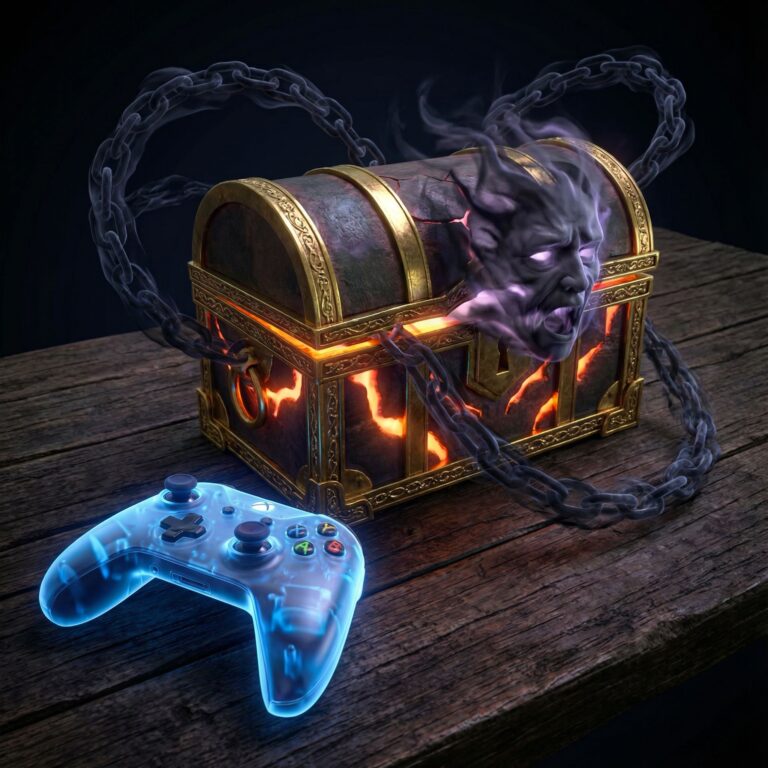Why Gamblers Stop Only When They Lose Loved Ones
The High Cost of Gambling Too Much
Problem gamblers keep going even if they lose a lot of money, but stop only when they lose key relationships. Losing money might feel ok for a while, but losing close people brings a storm of feelings that breaks through their wall of denial. 토지노솔루션
Getting Past Denial
The mental pain of seeing loved ones leave hits harder than money loss. Unlike an empty wallet, broke relationships don’t heal with a lucky streak. When hooked gamblers see they have dropped deep bonds for gambling, it pushes them to deeply rethink and aim for recovery.
How Losing Loved Ones Spurs Recovery
Losing family or friends tends to wake gamblers up better than any money trouble could. This deep sadness makes them face how bad their habit got and how it hurt those around them. Realizing they traded true relationships for a fleeting win often becomes the push they need to seek help and change.
Clear Warning Signs
- Tense ties with family
- Friends pulling away
- Less trust with partners
- Feeling distant from kids
- Lost work connections
The Power of Heartache
How Heartache Aids Gambling Recovery
Feeling the Emotional Toll of Gambling
Gambling addiction sends deep cuts through families, harming both the gambler and their close ones. Finding out about hidden gambling money issues, lies, and financial betrayals hurts deeply and can linger for years. These breaches in trust deeply cut into the core of relationships, making it hard to feel close to one another again.
Making a Change Due to Pain
Emotional hurt often becomes the shift point in gambling recovery. While losing money seems small, the real sight of family pain – seeing a partner cry or a child lose trust – breaks through denial. This hard hit of reality often sparks the true need to change gambling ways.
The Cycle of Trauma and Recovery
Families in the grip of gambling addiction go through certain stages of feelings:
- Shock and disbelief
- Big anger and feeling betrayed
- Deep sadness
- Finding peace or moving on
The non-gambling partner might show signs of: Why Watching Others Win Can Be Just as Dangerous as Losing
- Constant worry
- Deep sadness
- Being on high alert with money
- Issues trusting in relationships
- Withdrawing from others
Making Light of Money Loss
How Gamblers Brush Off Losing Money
The Mind Game of Justifying Losses
Problem gamblers weave complex tales to make sense of losing money. They often fall for the gambler’s mistake, thinking a big win must be just next, or see losses as just small bumps in their bigger plan. Looking at their money record, they focus on wins and brush off big losses.
Trickier Ways to Explain Losses
As money loss piles up, their excuses get more crafty. Gamblers start to see their betting as smart money moves, sure that they have special skills to eventually win big. They often look up to professional gamblers as proof that their plan is solid, despite very different odds and setups.
Ignoring the Money Blow
The big risk with these mind tricks is how they hide the true money mess from sight. Gamblers might write off losses as fun costs or learning money, allowing the betting to go on despite growing debts. This habit of ignoring the growing hole keeps up until they face big shakes such as losing houses or relationship breakups.
Signs of Making Less of Losses
- Cherry-picking gambling results
- Playing down money loss
- Wrong comparisons to pro gamblers
- Seeing gambling as an investment
- Not seeing the debt pile-up
Seeing Through the Lies
Breaking Free from Gambling Lies
Recognizing the Self-Trickery
Self-deception in gambling shows up as tricky thoughts hiding the truth of addiction. Problem gamblers spin complex reasons to feel in control, even as they keep losing and facing bigger problems. Breaking free requires tough self-checks and being responsible.
Picking Up on the Clues
The Almost Win
Near wins show a key lie in gambling thinking. What looks like ‘almost there’ actually shows risky habits. Seeing the truth helps cut through the false hope of ‘almost winning’.
The Real Cost in Time
Checking the time spent gambling must cover everything involved. Not just playing, but also:
- Getting ready periods
- Being stuck mentally on gambling
- Recovering from playing
- Time managing money
- The toll on daily duties
Busting Through Denial
The Truth in Numbers
Telling the raw truth about money loss means facing real numbers. Keeping full tabs on:
- All money spent gambling
- The real wins against all losses
- The total hit on finances
- Extra costs (travel, missing work, borrowed money)
This full record offers a clear view that confronts the old lies. The dream of the big rescue win fades when the real, regular losses show up.
When Money Stops Mattering
When Money Loses Meaning: Seeing Gambling’s Money Twist
How Money’s Worth Changes
The wrong view of money’s worth is a harsh result of gambling too much. In the haze of betting, money shifts from being a way to keep stable to just chips for playing. Casino tokens, online points, and betting slips drop their link to real needs like paying for a home, food, or saving for school.
The Slow Fade from Reality
This wrong view of money grows slowly. What starts with making light of a small loss, like $100, turns into seeing big sums as just numbers online. Problem gamblers can lose thousands without flinching, while sweating over basic home costs.
Facing the Truth: The Crash Moment
Ignoring what money really means goes on until a shock event makes them see. These big moments often involve:
- Relationships ending from breaking apart
- Using up all savings and trust funds
- Home crisis from not paying the mortgage or being kicked out
Relationships Drive Recovery
The Push from Relationships in Gambling Fixing
Seeing How Bonds Help in Getting Better
Help circles lay the ground for beating gambling habits, with deep bonds driving big changes. When those fighting gambling stand to lose loved ones, it hits hard in a way money troubles can’t. The risk of losing a marriage, breaking from kids, or cutting off friends often breaks through the thought walls keeping gambling going.
Pulled Two Ways to Get Better
Strong ties push and hold up the getting better steps. The drive to keep relationships sets up an inside push and outside hold, making for a strong plan to get better than just going to a professional or trying to fix things alone.
The Big Change Moment in Fixing Things
The fear of losing special bonds often sparks a ‘now or never’ feel – the key point where losing people feels worse than anything gambling could give. This wake-up is often when real fix-it steps start, especially when combining professional help with:
- Family meeting help
- Working on relationships
- Joining support groups
The mix of holding onto people and working with professionals often sets up the best road to stay on track and manage the gambling problem.
The Mind of Rock Bottom
The Mind at Rock Bottom: Seeing the Crash Point in Gambling Too Much
What Hitting Bottom Means in Bad Gambling
Rock bottom marks a deep mind point where gamblers see the full crash of their habit in all parts of life. This crash point usually shows up when the loss gets too much, touching money, feelings, and key ties.
All the Ways Hitting Bottom Hits Hard
Money and Feeling Wrecks
Problem gambling spins a big web of ruin, going way past just losing money. The weight grows as gamblers use up savings, get into debt, and drain safety nets, causing big emotional and mind troubles.
Busted Bonds as a Push to Change
Losing key relationships often turns into the real crash point for many gamblers. When loved ones or friends pull back, it often breaks the gambler’s way to ignore or make less of how bad their gambling got.
Each Person’s Crash is Different
Personal Limits
Every person’s bottom point varies a lot based on their:
- How much heartache they can take
- How aware they are of themselves
- How strong their support circle is
- Money they have left
- What they put first in life
Spotting and Starting to Fix Things
The moment gamblers see they need help to get better often lines up with losing their last bit of stable feeling or money safety. This ‘aha’ moment happens when all that’s left to hold onto falls apart, leaving change as the only road left.
How Hitting Bottom Helps Get Better
The deep mind shift of hitting bottom often becomes the push to look for help and start programs to get better. Knowing these crash points aids those giving help to make stronger plans and support setups for those stuck in gambling troubles.
Piecing Trust Back Together After Gambling Issues
Piecing Trust Back Together After Gambling: A Full Fixing Guide
How Gambling Breaks Trust
When gambling hits rock bottom, putting broken trust back together stands as one of the toughest parts of getting better. The harsh cycle of lies, broken promises, and money wrecks hurts ties deep, and simple words can’t mend it.
Must-Do Steps to Fix Trust
Clear Money Sharing
Full money openness lays the base for building trust back. This means:
- Giving all account secrets
- Showing money records often
- Watching money moves together
- Setting up clear money plans
Being Responsible
Staying true means accepting more checks and truth tests:
- Checking in with loved ones often
- Sharing where you are when asked
- Talking openly about what you do each day
- Showing how you keep working on fixing things
Key Paths to Long Trust Building
Firm Work Commitment
- Keeping a steady job
- Paying all dues
- Making up for past money mistakes
- Showing you’re dependable at work
Steady Help in Getting Better
- Going to therapy often
- Being part of support groups
- Working with addiction experts
- Making a new circle of sober friends
Staying True Always
- Keeping promises
- Staying within set limits
- Speaking truthfully
- Being reliable every day
How Long Fixing Trust Takes
The road to fixing trust is long, often taking years not months. Loved ones being careful shows they’re protecting their hearts, not turning you away forever. Focus on steady, clear actions while giving others the time they need to start trusting again.


